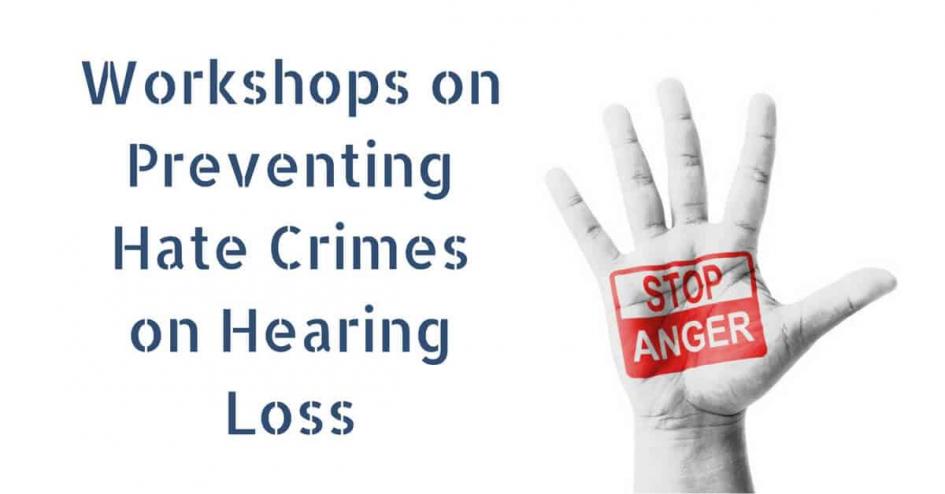
Workshops on Preventing Hate Crimes on Hearing Loss
Feb 19, 2018
A charity which supports deaf and hard of hearing people called deafPLUS have organized a workshop which aims to educate people about D/deaf targeted hate crimes.
The workshops raise awareness of Deaf Hate Crime among Hard of Hearing individuals and will gather research on experiences of hate crime in the UK. This research will be used by the Home Office to aid them in writing policy with regards to hate crime among the deafened and hard of hearing. The workshops aim to define and identify hate crime, and how to best respond to it if it should ever happen to you.
In the month after the UK voted to leave the EU, hate crime rose. We saw a 20% increase in the months following Brexit, according to the National Police Chiefs council.
And the problem isn’t going away. The British Deaf Association (BDA) recently wrote a report in which they interviewed a number of Scottish deaf people to find their experiences of hate crime. Over half surveyed have suffered a hate crime. The majority of those victims have experienced it four times or more in their lives. And half of the participants know someone else who has experienced a hate crime.
One specific example of hate crime was highlighted in Channel 4’s airing of a programme called “999 whats your number?’ in July 2016. The show featured a deaf man called Stuart who was victimised for his deafness by his neighbours. He has since moved away from those abusive neighbours. But the abusers were never held to account.
As we see in Stuart’s case, many people in this situation also don’t know what constitutes a hate crime, and so merely brush the incidents off thinking there’s nothing they can do – when in fact there is.
What is hate crime?
We can define it as a wrongdoing carried out against a person or property that is persuaded by ‘malice or ill-will towards an identifiable social group’'. If you believe you have been targeted because you are deaf or hard of hearing, then it might be considered a hate crime.
Those who are vulnerable often suffer from hate incidents in the form of:
- verbal abuse
- bullying or intimidation
- hoax calls, abusive phone or text messages
- online abuse on Facebook or Twitter
- physical assault
- criminal damage to property
- intimidating or threatening behaviour
- offensive literature
- emotional and psychological abuse
- bullying
- murder
Our Clinics
All House of Hearing clinics are in town centre locations and accessible to public transport and parking. Home visits also available if mobility is an issue.


.png)
.png)
.png)

.png)
